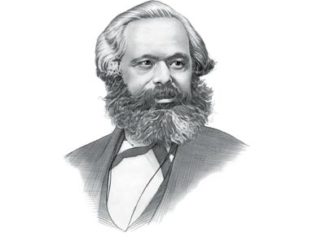
A recent decision by U.S. Attorney General Jeff Sessions and the Department of Justice to “give new authority to law enforcement agencies to seize money, contraband and property when they can prove those assets are the ill-gotten gains of criminal activity” has brought the issue of civil asset forfeiture to the forefront on the national political stage.
If you’re not familiar with civil asset forfeiture, this empowers law enforcement to confiscate and sell belongings they believe to have been used in a crime– often without a conviction. North Dakota ranks among the worst in the nation with its laws regarding this.
And the issue is no stranger to our state. Just four months ago, the North Dakota Senate did the unthinkable and unanimously voted down Rep. Rick C. Becker’s (R – District 7) House Bill 1170 which proposed to change some of the standards associated with current state law.
The primary changes HB 1170 put forth would have required a conviction to permanently seize property and when it is sold to put the money in the General Fund instead of going to law enforcement. Thus removing incentive for abuses to occur by eliminating the possibility of law enforcement benefiting from confiscation of property.
Opponents of Rep. Becker’s bill said it was trying to “fix a problem that does not exist”. And unfortunately, many people unfairly portrayed the issue as anti-law enforcement. A characterization that is completely inaccurate.
The real issue at hand is understanding that the fundamental purpose of government is to protect the inherent rights of the people. The refusal of our Legislature to protect the property rights of present and future citizens is, quite frankly, unacceptable.
And this begs the question, “Should civil asset forfeiture reform come to North Dakota through initiated measure?” There have been many examples through the years of issues being taken to the people through initiated measure after the Legislature voted them down.
The Sunday Closing Laws are the most recent example of this. The North Dakota Senate voted down the repeal of the “Blue Laws” this last Legislative Session as well. Now a movement is afoot in the state to gather signatures to put it to a vote of the people in November 2018. And all indications are that it will pass by a large margin.
My preference would be that the Legislature do the right thing and pass civil asset forfeiture reform in 2019. The possibility shouldn’t even exist that a citizen of North Dakota – or the United States for that matter – have their property seized and then dispersed to the government. Especially when they’ve not been convicted of a crime.
The only thing more embarrassing than the North Dakota Senate voting this down last session will be if nothing is done about it going forward. And for that reason, I would completely understand if this issue was put to the people on a ballot measure– something I’ve heard floated around as a possibility.
The issues of property rights and due process are paramount here and North Dakotans shouldn’t accept anything less than their protection. That’s NOT anti-law enforcement. It’s common sense and something every North Dakotan should stand for.
Sources:
1. http://www.grandforksherald.com/news/crime-and-courts/4304578-north-dakota-among-worst-civil-forfeiture-experts-say
2. http://thehill.com/homenews/administration/342702-doj-expanding-controversial-asset-seizures-programs
3. https://theminutemanblog.com/single-post/2017/03/30/Epic-Fail-North-Dakota-Senate-Defies-Logic-Kills-Civil-Asset-Forfeiture-Bill





